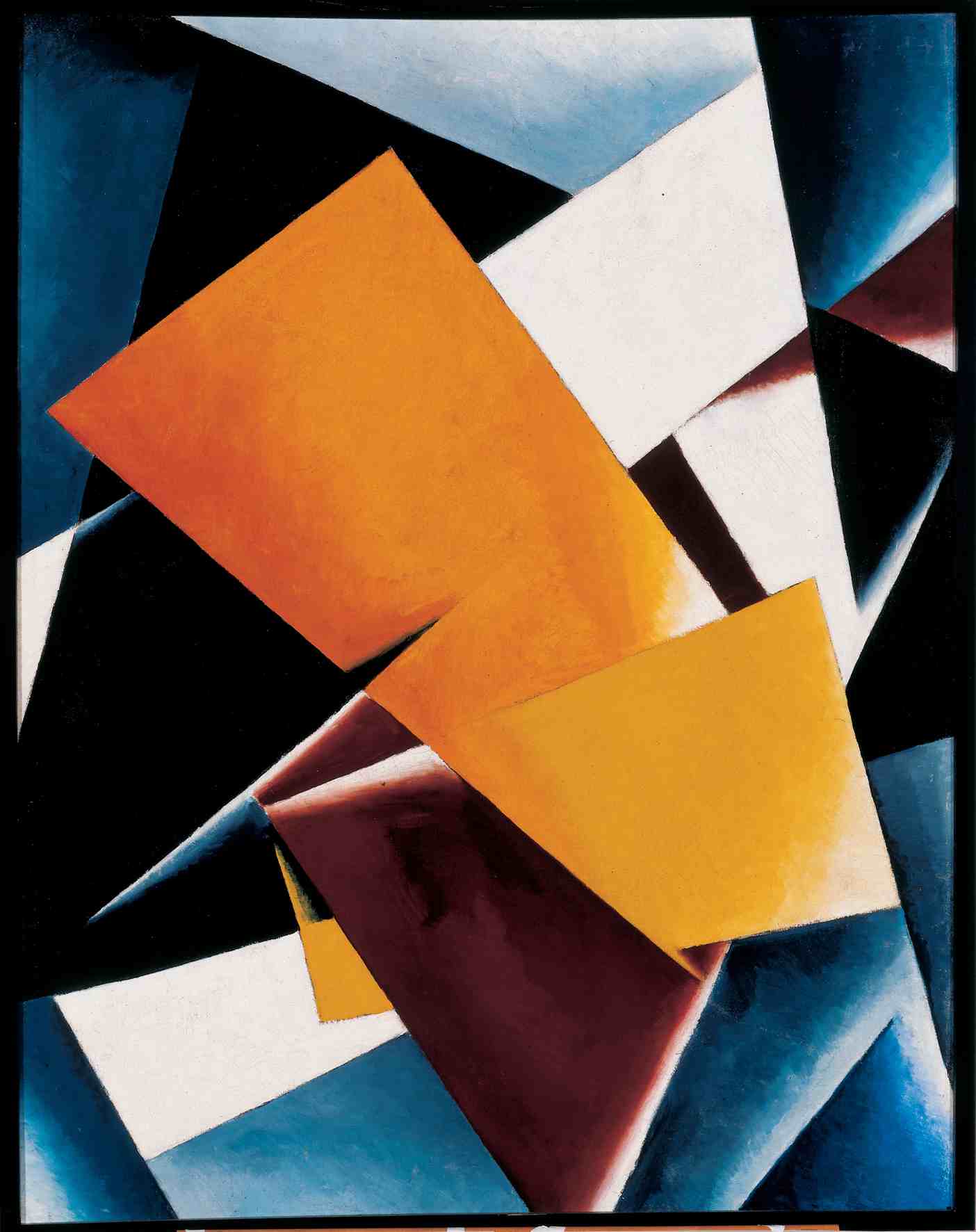Modernism was a movement in the western art. It was around
the 1850’s. Modernism declined the styles and techniques of the past and
created new ones through experimentation. It was basically a whole new language
that consisted of abstraction, expressionism, dada, and surrealism. Artist
helped in the development of modern art by focusing more on the experimentation
on the forms, and the techniques rather than focusing on the subject itself.
In Exter’s
painting you can see that she focuses more on colors, lines and forms. Most of
the painting consists of different shapes made with varying lines. Exter’s main
focus as one can see in the painting is not to get the reality of the subject
matter but to show the meaning through a whole new different language. The
viewer might be unable to tell what the subject matter of the painting is. The
attention goes to the forms, colors, and shapes. Exter met some cubists in
Paris and a year later Exter’s paintings were all inspired with great spaces,
wedges, and shapes.
Liubov
Popova Painterly Architectonics 1918
Popova
follows the modernist painter rubric as well where she rejects all traditional
style and experiments with form in her subject matter. She uses a vibrant color
in the middle of the painting that catches the eye and plainer colors around
it. Popova was from a wealth family, she was influenced a lot from futurism and
spent her time interpreting it as well as cubism. Unlike Exter who focuses more
on line Popova concentrates on colors and texture.
The tittle
says it all “cubist” dress. The dress is inspired from one of the many languages
that were born because of modernism. The dress looks like a cubist painting
taken and put on the dress directly. Women’s fashion took a turn because of
modernism. Clothes designed involved more simplicity of lines and colors than
the previous styles before the modernism movement. The fashion industry focused
on modern women- their sexuality as well as their youth. The avant-garde art
inspired the fashion industry especially with women because they were more able
consumers. The roles for women were expanded in her regards to being a
consumer. Vogue’s cubist dress took abstract textiles which led to mass
production for higher and middle class women. The modern fashion spread
extremely quickly across Western Europe and America. They even modernized the accessories
for women as seen in the photo above. The models earrings are cubist inspired as
well.
As the
modern artist were consumed with forward thinking approach, showing their
progress, the reaction against all that came to be known as Postmodernism. It
questioned everything that was embraced by the modern art. Postmodernism was
more realistic than the modern art, whereas modernism focused more on lines,
colors, shapes, and textures rather than subject matter, postmodernism focused
on the originality of the content. To portray it with little or alteration from
the original subject matter. It sought out to reject the aspects that came to
birth because of modernism.
Guerrilla
Girls Do Women Have To Be Naked To Get
Into the Met. Museum? 1989
One good
example of Postmodernism art is by the Guerrilla Girls. They use text in their
art to convey their message. The Guerrilla Girls have been trying to bring
awareness to the fact that there aren’t many female artists’ works in the met
museum, it begs the question of why the female painters are less by the subject
matter of so many female nudes more. It makes the viewer confront the fact of
woman being used as objects more and being seen as capable artists less. It
shows the discrimination female artist face and their fight towards the
recognition they deserve. Postmodernism art is often very confrontational and
conveys the message outright.
Barbara
Kruger We Don’t Need Another Hero 1986
Kruger
takes the inspiration from Rosie the Riveter poster where females were
encouraged to join the work force during the times of war, Kruger shows the
comparison of how women were seen at the time of war and how women are seen in
the aftermath it. Maybe the viewers can also get the meaning of the war is over
and there is no need of hero’s anymore. As the Guerrilla Girls art was
confrontational so is Kruger’s in a way. She questions societal roles of
gender. The girl in the picture is seeing how much muscle the boy has. It makes
the viewer think is that what makes a man a “man”? To have muscle and to be
strong makes one more masculine and that is how society sets standards for men.
Are woman only impressed by men who are big and strong? Begs the viewer it is
something to think about.
Works Cited
Chadwick, Whitney. Women, art, and society. Thames & Hudson, 1996.



No comments:
Post a Comment
Note: Only a member of this blog may post a comment.